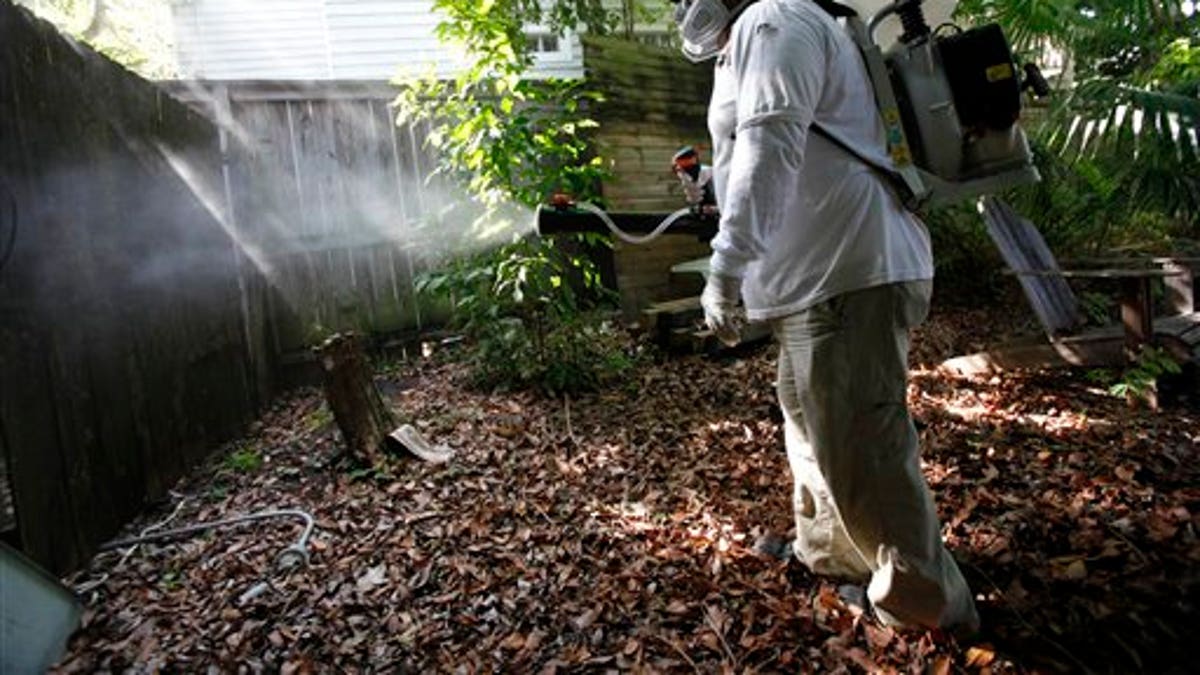
Jason Garcia, a field inspector with the Florida Keys Mosquito Control District, tests a sprayer. (AP)
Officials in the Florida Keys are waiting for the federal government to sign off on a unique experiment: releasing thousands of genetically modified mosquitoes as a means to reduce the risk of dengue fever in the tourist town of Key West.
If approved by the Food and Drug Administration (FDA), it would be the first in the country. However, some residents are worried that not enough research has been done to determine the risks of releasing genetically modified mosquitoes to an area featuring a fragile ecosystem.
Officials are targeting the Aedes aegypti mosquitoes because they can spread dengue fever, a disease health officials thought had been eradicated in the U.S. until 93 cases originated in the Keys in 2009 and 2010.
The trial planned by mosquito control officials and the British company Oxitec would be to release non-biting male mosquitoes that have been genetically modified to pass along a birth defect that kill their progeny before reaching maturity. The idea is that they will mate with wild females and their children will die before reproducing. After a few generations, Key West’s Aedes aegypti population would die off, reducing the dengue fever risk without using pesticides and at relatively a low cost, the proponents say. There is no vaccine for dengue fever.
The district’s website says the modified genes will disappear from the environment after the mosquitoes carrying it die, resulting in no permanent change to the wild mosquito population. The district also says that the mosquito species isn’t native to the Keys, nor is it an integral source for other animals.
Dengue fever is a viral disease that inflicts severe flu-like symptoms. The joint pain is so severe its nickname is “breakbone fever.” It isn’t fatal, but victims are susceptible to dengue hemorrhagic fever, which can be.
Only female mosquitoes bite, so the modified genetic material wouldn’t be passed on to humans, say officials.
On the other hand, the Aedes aegypti has shown resistance to pesticides used to control other species, and is the most difficult for the district to manage. Common in the Southeast and the Caribbean, it lurks in standing water around homes and businesses and can breed in containers as small as bottle caps. District inspectors go door-to-door to remove the standing water where they breed, a time-consuming task. The district spends roughly $1 million a year to suppress Aedes aegypti.
But when it comes to the experiment, it could take years for the FDA to approve the trial.
There hasn't been a case of dengue fever in Key West since November 2010, but two other cases were reported elsewhere in South Florida this fall.
Based on reporting by the Associated Press.
Follow us on twitter.com/foxnewslatino
Like us at facebook.com/foxnewslatino
